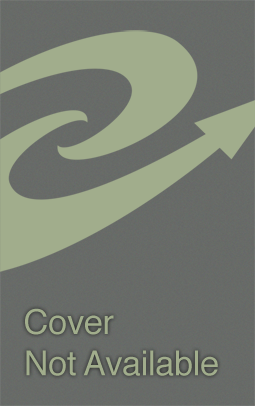
The Counter-Revolution of 1776
Slave Resistance and the Origins of the United States of America
by Gerald Horne
This title was previously available on NetGalley and is now archived.
Send NetGalley books directly to your Kindle or Kindle app
1
To read on a Kindle or Kindle app, please add kindle@netgalley.com as an approved email address to receive files in your Amazon account. Click here for step-by-step instructions.
2
Also find your Kindle email address within your Amazon account, and enter it here.
Pub Date Apr 18 2014 | Archive Date Dec 14 2014
Description
Illuminates how the preservation of slavery was a motivating factor for the Revolutionary War
The successful 1776 revolt against British rule in North America has been hailed almost universally as a great step forward for humanity. But the Africans then living in the colonies overwhelmingly sided with the British. In this trailblazing book, Gerald Horne shows that in the prelude to 1776, the abolition of slavery seemed all but inevitable in London, delighting Africans as much as it outraged slaveholders, and sparking the colonial revolt.
Prior to 1776, anti-slavery sentiments were deepening throughout Britain and in the Caribbean, rebellious Africans were in revolt. For European colonists in America, the major threat to their security was a foreign invasion combined with an insurrection of the enslaved. It was a real and threatening possibility that London would impose abolition throughout the colonies—a possibility the founding fathers feared would bring slave rebellions to their shores. To forestall it, they went to war.
The so-called Revolutionary War, Horne writes, was in part a counter-revolution, a conservative movement that the founding fathers fought in order to preserve their right to enslave others. The Counter-Revolution of 1776 brings us to a radical new understanding of the traditional heroic creation myth of the United States.
Advance Praise
No Advance Praise Available
No Advance Praise Available
Marketing Plan
No Marketing Info Available
No Marketing Info Available
Available Editions
| EDITION | Other Format |
| ISBN | 9781479893409 |
| PRICE | $89.00 (USD) |
Links
Average rating from 15 members
Featured Reviews
 Rosemarie C, Reviewer
Rosemarie C, Reviewer
It took me a while to get in to, but once a third of the way through, I read the book easily. It was thoroughly engrossing.
Generally I don’t review a book till I have read every last word. I make an exception only when I find work so excellent that I am convinced that if the book ended right where I am, right now (about 75 percent through, and of course I checked the sources), it would still be worth the full cover price. I will read the rest, but you need to know about this book RIGHT NOW.
Reading this galley, courtesy of the publisher, New York University, via Net Galley, made me feel as if the American history I studied as an undergraduate and then taught for twenty years in the public school system was so incomplete as to be incorrect. If you care about American history; if you have ever wondered why Black anger still runs so deep, especially in certain parts of the USA; if you scratched your head over parts of American history as it has been presented and the ways it did not make sense, then you must read this book.
The fact is that America’s early Black population, as well as that of Blacks in the Caribbean, behaved with much more courage and savvy than they are given credit for in standard history texts. The role of Spain that Horne explains here, as well as that of the Catholic Church, and of the Cherokee people, is startling news.
And the fact is, what I read here makes me ask questions about all sorts of other events, such as the Louisiana Purchase (the significance of having included Florida in the deal is a monster once this new information is merged with what we knew before), to the Trail of Tears and banishment of the Cherokee Nation from Georgia, to the question I was never able to adequately answer for my own bright students: “Where did the free Blacks come from?” It’s here. It’s all here. America’s students have been robbed, up to this point. If you are a teacher, you have to get this book, even if it means buying it out of your own pocket. You can’t tell the truth without this book!
In reading this outstanding work, knowledge of basic place-name geography is critical. A lot of people these days have no idea, for example, where the Bahamas stand in relationship to North America, which US states are where, or even which European nations are closest to the Caribbean and the USA, and if you are fuzzy in this regard, you may need to pull out a map or grab a globe so that you can see how much that proximity matters. Those miles are important miles, and this information is massively different from what I was taught, and it is well enough documented that I am convinced it is true. And it makes so much sense.
I can’t hold this review until I have finished the book. I want all scholars who have been stuck in the dark through wrongful and errant selection of information in their own educations to know this book is available, and that what it imparts is huge. Black students deserve to know the truth; their history in the US is not one of pure terror and subjugation; their ancestors fought, and they thought, and they behaved politically. This knowledge is a basic right, not only for them, but for anyone who cares about the truth!
Readers who liked this book also liked:
Jodi Picoult; Jennifer Finney Boylan
General Fiction (Adult), Literary Fiction, Women's Fiction




